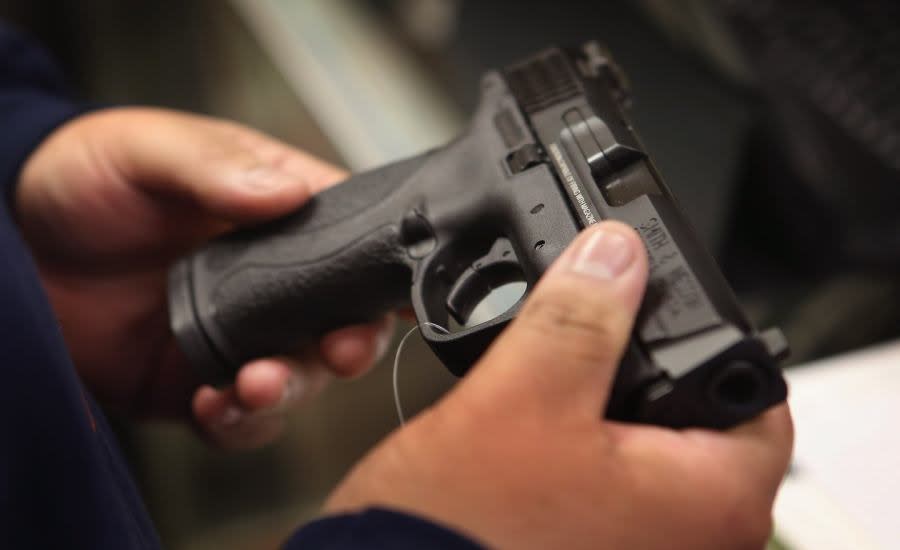Supreme Court expands gun rights in major Second Amendment ruling

- Oops!Something went wrong.Please try again later.
The Supreme Court on Thursday struck down a New York state law that made it difficult to obtain a permit to carry a handgun outside the home, marking the justices’ first major opinion on Second Amendment rights in more than a decade.
The 6-3 decision to invalidate New York’s law will almost certainly render unconstitutional similar restrictions in more than a half dozen other states that give licensing officials wide discretion over concealed carry permitting.
The ruling broke along ideological lines, with the court’s six conservatives joining a majority opinion written by Justice Clarence Thomas.
The New York law at issue required concealed carry permit applicants to demonstrate a special need for a license, beyond a basic desire for self-defense. In striking down the law, the court’s conservatives ruled that the so-called “proper-cause requirement” prevented “law-abiding citizens with ordinary self-defense needs from exercising their right to keep and bear arms.”
“We know of no other constitutional right that an individual may exercise only after demonstrating to government officers some special need,” Thomas wrote for the majority. “That is not how the First Amendment works when it comes to unpopular speech or the free exercise of religion. It is not how the Sixth Amendment works when it comes to a defendant’s right to confront the witnesses against him. And it is not how the Second Amendment works when it comes to public carry for self-defense.”
The ruling’s broad sweep amounts to a complete overhaul of the court’s Second Amendment doctrine and is expected to call into question a wide range of other gun laws, according to legal experts.
The court’s three liberals, in dissent, accused the conservative majority of failing to consider “the potentially deadly consequences of its decision.”
The ruling comes after recent mass shootings reignited a wrenching debate over how to balance a constitutional right to bear arms with Americans’ concerns for personal safety in a country with more than 390 million privately owned firearms.
The dispute arose after two New York residents were denied unrestricted carry licenses. Backed by an affiliate of the National Rifle Association, the applicants sued the licensing officials and, after losing in the lower courts, filed their ultimately successful appeal to the Supreme Court.
Thursday’s decision could hamper efforts to pass modern gun control measures. According to Adam Winkler, a professor at UCLA School of Law, the ruling means that for a gun law to be constitutionally permissible, it must be consistent with historical patterns of gun regulation.
“A law like a red flag law — part of the Senate compromise — is a new modern innovation,” he said. “There is no historical tradition of taking guns away from people who are in crisis.”
The opinion builds on the court’s last major gun rights decision more than a decade ago. In a 2008 case called District of Columbia v. Heller, a 5-4 court ruled that the Constitution protects an individual’s right to keep a gun in the home for self-defense. The court in Heller noted that the Second Amendment is “not unlimited,” but left unanswered what restrictions are constitutionally allowed.
The Department of Justice, on behalf of the Biden administration, had argued in support of New York and urged the court to defer to the longstanding practice of allowing legislatures to place reasonable limits on firearms to protect public safety.
Updated at 11:48 a.m.
For the latest news, weather, sports, and streaming video, head to The Hill.

